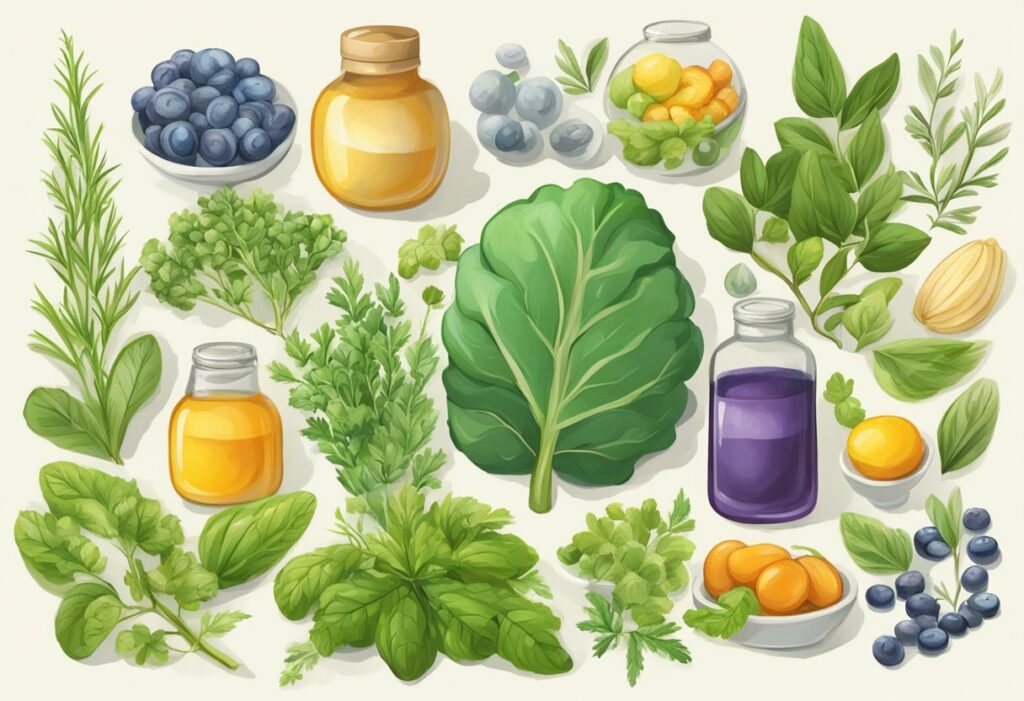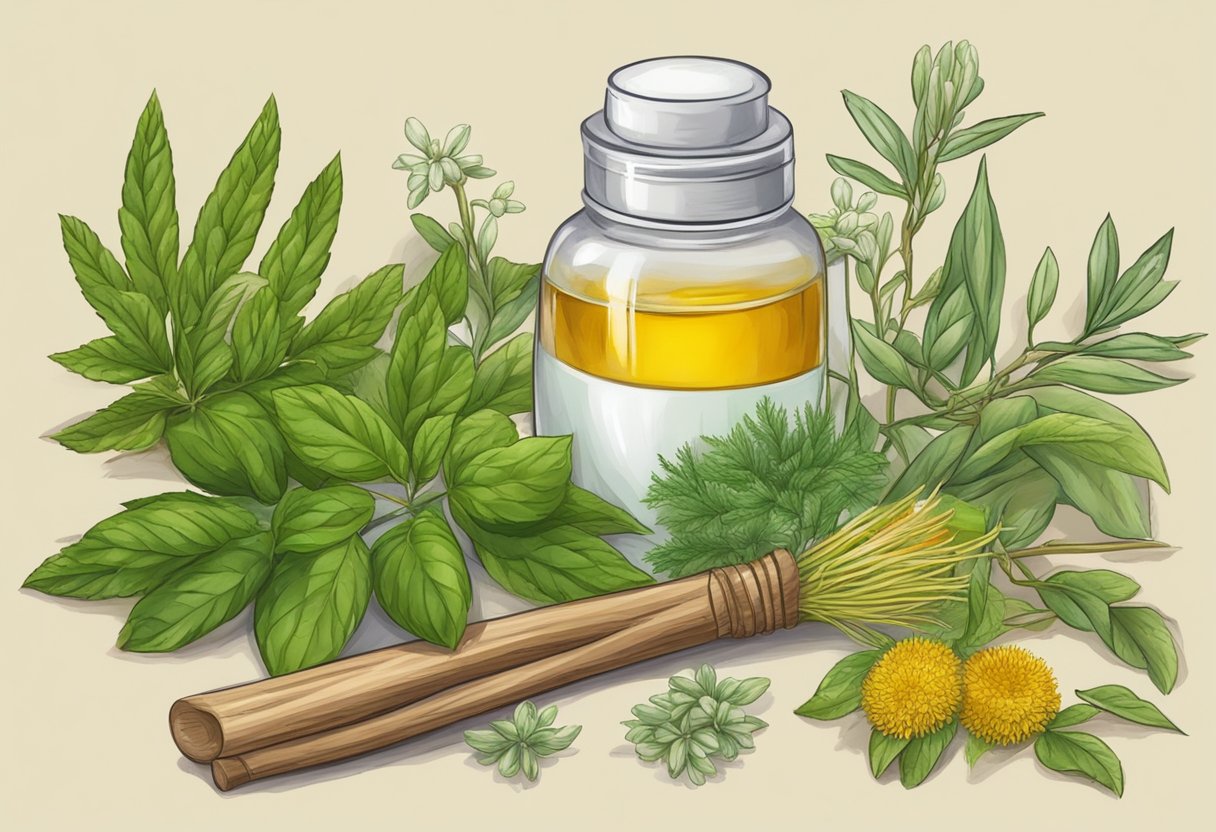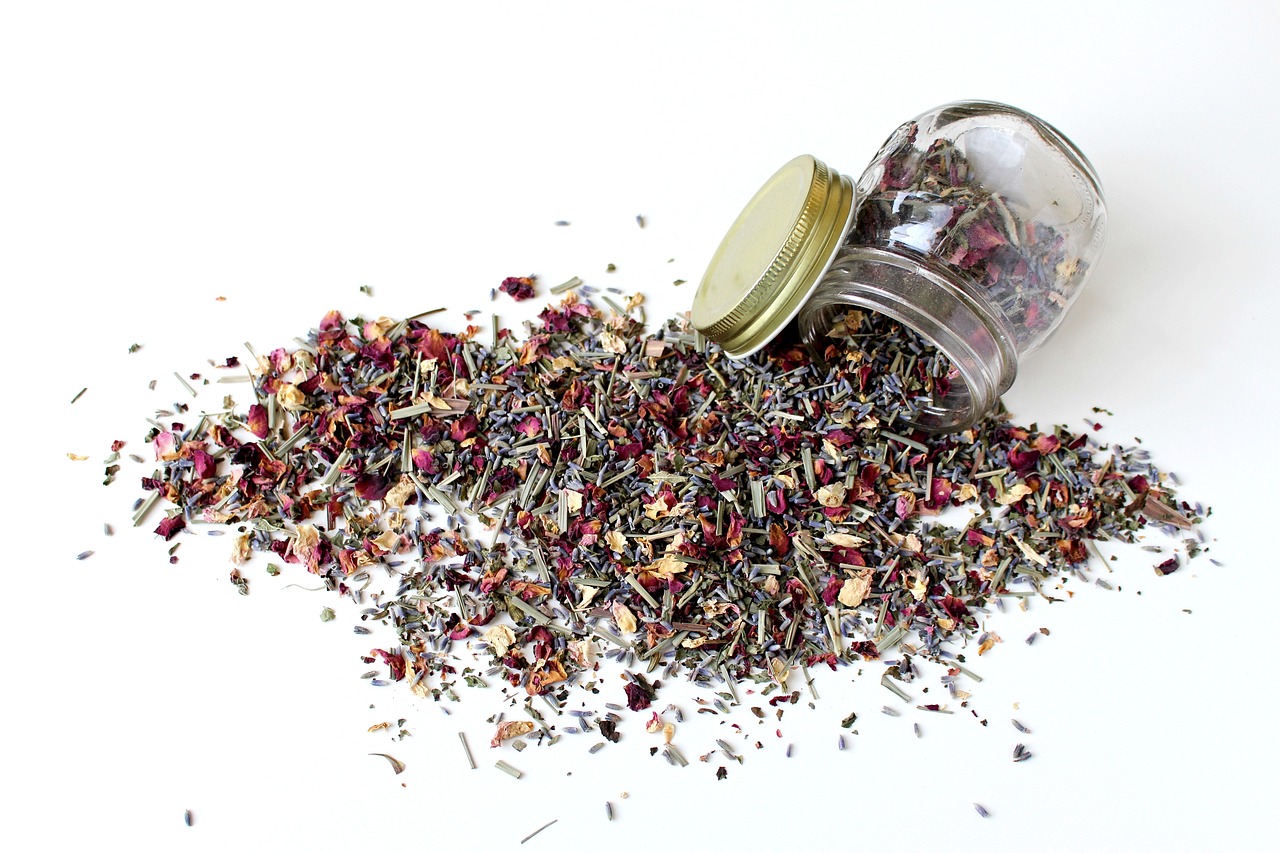Brain fog is a term used to describe a feeling of mental fatigue or confusion. It is a condition that affects many people, and can be caused by a variety of factors, including stress, lack of sleep, poor diet, and certain medical conditions. Brain fog can make it difficult to concentrate, remember things, and perform daily tasks. However, there are many excellent and helpful options in the natural world when researching the best herbs for brain fog.
Disclaimer: This article is provided for informational purposes only and should not replace professional medical advice. Please consult with a qualified healthcare practitioner or herbalist before using any herbal remedies.
There are several herbs that are known to help improve mental clarity and cognitive function. These herbs have been used for centuries in traditional medicine, and are now being studied for their potential benefits in modern medicine. Some of the best herbs for brain fog include ginkgo biloba, bacopa monnieri, and rhodiola rosea.
Ginkgo biloba is one of the most popular herbs for brain fog. It has been used for centuries in traditional Chinese medicine to improve memory and cognitive function. Studies have shown that ginkgo biloba may help improve blood flow to the brain, which can help improve mental clarity and cognitive function. Bacopa monnieri is another herb that is known to help improve brain function. It has been used in Ayurvedic medicine for centuries to improve memory and cognitive function. Rhodiola rosea is an adaptogenic herb that is known for its ability to combat fatigue and improve mental performance. It helps increase resistance to stress and enhances cognitive function.
Understanding Brain Fog
Brain fog is a term used to describe a range of symptoms that affect cognitive function, including mental fatigue, lack of focus, and memory loss. It is a common experience for many people, and it can be caused by a variety of factors, including hormonal changes, food allergies, poor diet, lack of sleep, and chronic stress.
Symptoms and Causes
Brain fog can manifest in a variety of ways, including difficulty concentrating, forgetfulness, confusion, and a feeling of mental exhaustion. It can be caused by a number of factors, including hormonal imbalances, chronic stress, and immune system dysfunction.
Effects on Cognitive Function
Brain fog can have a significant impact on cognitive function, including reaction time, executive function, and mental performance. It can also lead to cognitive decline and memory loss over time.
Role of Lifestyle and Diet
Lifestyle changes, including getting enough sleep and managing stress, can have a positive effect on brain fog. A healthy diet that includes a variety of nutrients can also support neurological function and mental function.
Brain Fog and Medical Conditions
Brain fog can be a symptom of many medical conditions, including chronic fatigue syndrome, mental illnesses, and Lyme disease. It is important to seek medical attention if brain fog is persistent or severe.
Modern Research on Brain Fog
Recent studies have explored the relationship between brain fog and hormone levels, particularly those related to the adrenal glands. Clinical studies have also investigated the role of lifestyle changes and natural remedies in alleviating brain fog symptoms.
Overall, understanding brain fog and its causes can help individuals take steps to manage and alleviate symptoms. By making lifestyle changes and seeking medical attention when necessary, individuals can support their cognitive function and overall well-being.

Best Herbs for Brain Fog
Brain fog is a common condition that can affect anyone, causing symptoms such as forgetfulness, confusion, and difficulty concentrating. While there are many factors that can contribute to brain fog, including stress, lack of sleep, and poor nutrition, there are also several herbs that have been traditionally used to help improve mental clarity and function.
Gotu Kola
Gotu Kola, also known as Centella Asiatica, is a traditional Chinese medicine herb that has been used for centuries to improve mental alertness and blood pressure. The herb is believed to have a positive effect on the blood-brain barrier, which is the protective membrane that surrounds the brain and prevents toxins from entering. Gotu Kola is one of the best herbs for brain fog and also is thought to improve blood flow to the brain, which can help to support healthy brain cells and central nervous system function.
Ginkgo Biloba
Ginkgo Biloba is another one of the best herbs for brain fog that is commonly used to help improve cognitive function and reduce oxidative stress caused by free radicals. The herb is believed to improve blood flow to the brain, which can help to support healthy brain cells and central nervous system function. Ginkgo Biloba has also been shown to have a positive effect on mental clarity and memory.
Bacopa Monnieri
Bacopa Monnieri, also known as Brahmi, is an Ayurvedic medicine herb that has been traditionally used to support mental health and clarity. The herb is believed to have a positive effect on mental clarity and brain function, and may also help to reduce stress and anxiety.
Rhodiola Rosea
Rhodiola Rosea is an adaptogenic herb that is known for its ability to help the body cope with stress and improve energy levels. The herb is believed to help regulate stress hormones such as cortisol, which can contribute to mental fatigue and brain fog. Rhodiola Rosea is also thought to improve mental clarity and alertness.
Withania Somnifera
Withania Somnifera, also known as Ashwagandha, is an Ayurvedic medicine herb that has been traditionally used to help support the immune system and reduce chronic inflammation. The herb is believed to have a positive effect on cortisol levels, which can contribute to mental fatigue and brain fog. Withania Somnifera is also thought to improve mental clarity and brain function.
Holy Basil
Holy Basil, also known as Tulsi, is an adaptogenic herb that is believed to help regulate stress hormones such as cortisol. The herb is also thought to have a positive effect on mental clarity and brain function, and may help to reduce stress and anxiety.
Lion’s Mane Mushrooms
Lion’s Mane Mushrooms are a medicinal mushroom that is believed to have a positive effect on nerve cells and growth factor. The mushrooms are thought to help support healthy brain function and improve mental clarity, making it a stand out choice when looking for the best herbs for brain fog.
Curcuma Longa
Curcuma Longa, also known as Turmeric, is a herb that is commonly used to help reduce chronic inflammation caused by free radicals. The herb is believed to have a positive effect on mental clarity and brain function, and may also help to improve memory.
Panax Ginseng
Panax Ginseng is a herb that is commonly used to help improve mental performance and energy levels. The herb is believed to have a positive effect on brain activity and may help to improve mental clarity and concentration.
Water Hyssop
Water Hyssop, also known as Bacopa Monnieri, is an Ayurvedic medicine herb that has been traditionally used to support mental alertness and brain function. The herb is believed to have a positive effect on mental clarity and cognitive function, and may also help to improve memory.
Importance of Herbal Supplements~ Best Herbs for Brain Fog
Herbal supplements have been used for centuries as a natural remedy for various health conditions. They are made from plants and their extracts, and are known for their therapeutic properties. Herbal supplements are gaining popularity as a natural way to treat brain fog, a condition that affects many people.
One of the main benefits of herbal supplements is that they are natural and do not contain any synthetic chemicals. This makes them safe for consumption and reduces the risk of side effects. Herbal supplements are also affordable and easily available, making them a popular choice for those seeking natural remedies.
Traditional Herbs
The best herbs for brain fog include ginkgo biloba, ashwagandha, rhodiola rosea, and bacopa monnieri. These herbs have been used for centuries in traditional medicine and have been shown to improve cognitive function, memory, and concentration.

Ginkgo biloba is a popular herb that is known for its ability to improve blood flow to the brain. It contains antioxidants that protect the brain from damage caused by free radicals. Ashwagandha is another herb that has been shown to reduce stress and anxiety, which can contribute to brain fog.
Rhodiola rosea is a herb that is known for its adaptogenic properties. It helps the body adapt to stress and has been shown to improve cognitive function and reduce mental fatigue. Bacopa monnieri is another herb that has been shown to improve cognitive function and memory.
Herbal supplements can be taken in various forms, including capsules, tea, and tinctures. It is important to consult with a healthcare professional before taking any herbal supplements, as they can interact with other medications and have potential side effects.
In conclusion, herbal supplements are a natural and safe way to treat brain fog. The best herbs for brain fog include ginkgo biloba, ashwagandha, rhodiola rosea, and bacopa monnieri. It is important to consult with a healthcare professional before taking any herbal supplements to ensure safety and effectiveness.
Role of Vitamins and Amino Acids
Vitamins and amino acids play a crucial role in maintaining brain function and preventing brain fog. Vitamin C, for instance, is an antioxidant that can help reduce oxidative stress in the brain, which can lead to cognitive decline. It is found in many fruits and vegetables, including oranges, strawberries, and bell peppers. Incorporating these foods into one’s diet can help boost vitamin C levels and support cognitive health.
Similarly, B vitamins are essential for brain function and can help reduce symptoms of brain fog. These vitamins play a crucial role in energy production and neurotransmitter synthesis, which are both critical for cognitive function. Foods rich in B vitamins include leafy greens, eggs, and whole grains. Incorporating these foods into one’s diet can help boost vitamin B levels and support cognitive health.
Amino acids are also important for brain function and can help reduce symptoms of brain fog. For instance, tryptophan is an amino acid that can help boost serotonin levels in the brain, which can improve mood and cognitive function. Foods rich in tryptophan include turkey, chicken, and bananas. Incorporating these foods into one’s diet can help boost tryptophan levels and support cognitive health.
In addition to incorporating these vitamins and amino acids into one’s diet, supplements can also be helpful for supporting cognitive function and reducing brain fog. However, it is important to consult with a healthcare professional before taking any supplements, as they may interact with other medications or have side effects.
Conclusion~ Best Herbs for Brain Fog
In conclusion, incorporating herbs into one’s daily routine can be a great way to combat brain fog. While there is no one-size-fits-all solution, some herbs have been shown to be more effective than others.
The first step in finding the best herbs for brain fog is to identify the underlying cause of the issue. For example, if stress is the culprit, adaptogenic herbs like ashwagandha and rhodiola may be the best choice. On the other hand, if poor sleep is the issue, herbs like valerian root and passionflower may be more effective.
The good news is that many herbs not only help with brain fog but also promote overall brain health. For example, ginkgo biloba has been shown to improve memory and cognitive function. Similarly, bacopa monnieri has been used for centuries in Ayurvedic medicine to enhance memory and learning.
It’s important to note that while herbs can be a great addition to one’s routine, they should not be used as a replacement for medical treatment. If brain fog persists or is accompanied by other symptoms, it’s important to seek the advice of a healthcare professional.
Overall, incorporating herbs into one’s routine can be a great way to support brain health and combat brain fog. By identifying the underlying cause of the issue and choosing the right herbs, individuals can take an active role in their own cognitive health.

Disclaimer: This article is provided for informational purposes only and should not replace professional medical advice. Please consult with a qualified healthcare practitioner or herbalist before using any herbal remedies.








2 Comments on “Best Herbs for Brain Fog: Natural Remedies to Boost Mental Clarity”